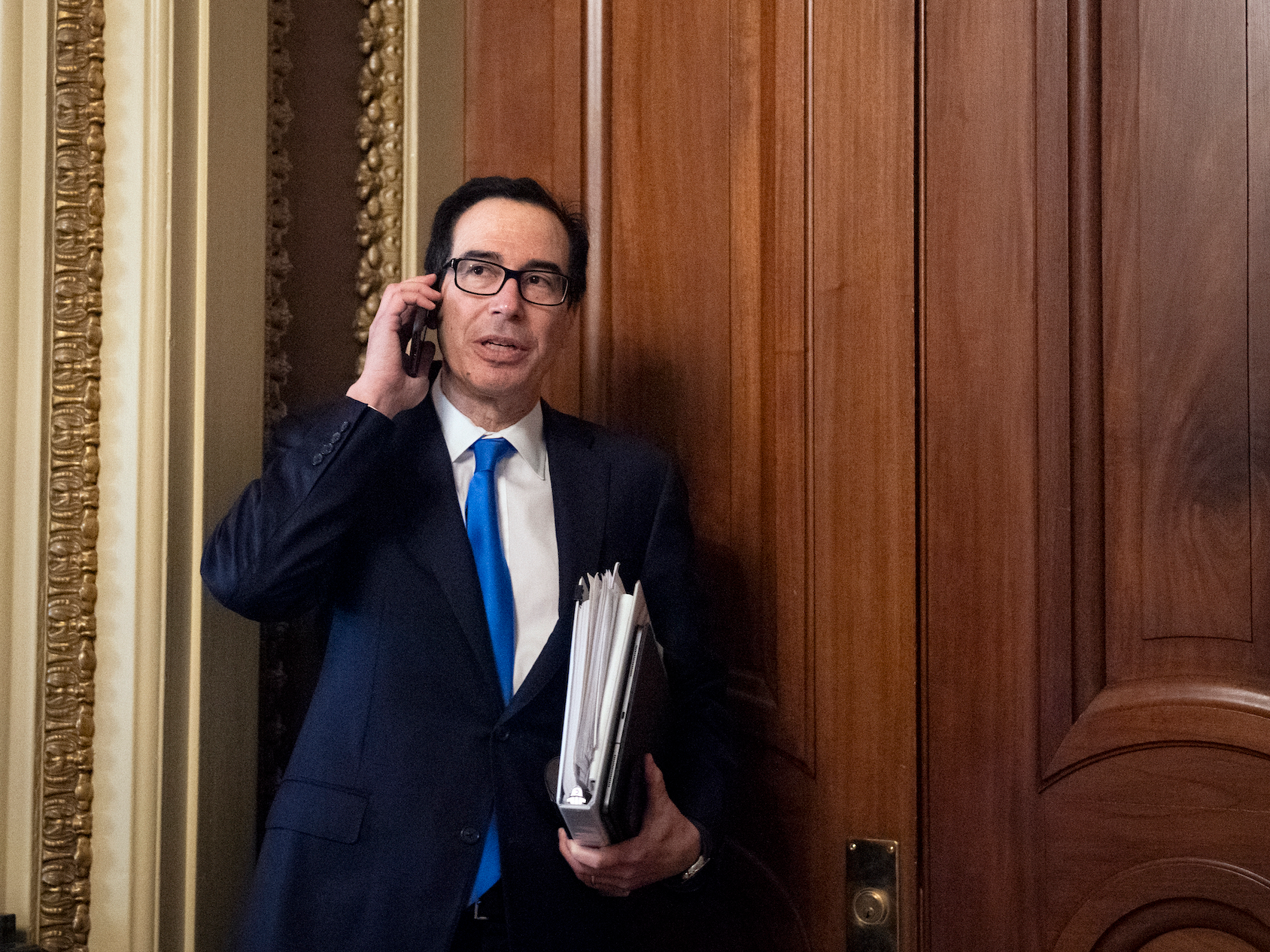- The US government will soon be sending millions of Americans stimulus checks of up to $1,200 each, plus $500 per child.
- If you qualify to receive this one-time direct payment, you do not have to sign up or provide additional banking or personal information to anyone.
- If you receive a phone call, text, or email asking for personal details or money in order to get your stimulus check, it’s a scam.
- Read more personal finance coverage »
President Donald Trump signed the Coronavirus Aid, Relief, and Economic Security Act, or CARES Act, into law on Friday.
Soon, millions of Americans will be getting stimulus checks from the US government. The one-time direct payments will be delivered by the IRS to individual taxpayers largely through direct deposit. Trump’s top economic adviser Larry Kudlow said Sunday that Americans can expect to see money in their bank accounts in “a couple of weeks.”
Keep in mind: You do not have to sign up to receive a stimulus check. The process is automatic for any American who qualifies. If someone is calling you or emailing you to confirm personal details or asking for bank information or money, it’s a scam.
The IRS generally gets in contact with taxpayers through snail mail – not via phone calls, text, or email, and definitely not through social media.
On its website, the Treasury Department advises: "If you receive calls, emails, or other communications claiming to be from the Treasury Department and offering COVID-19 related grants or stimulus payments in exchange for personal financial information, or an advance fee, or charge of any kind, including the purchase of gift cards, please do not respond."
Americans who didn't provide their direct deposit information to the IRS on their 2019 or 2018 tax returns will have the opportunity to do so via a forthcoming "web-based system," Treasury Secretary Steven Mnuchin also said on Sunday, so they don't have to wait for a stimulus check to come in the mail.
However, details about this online portal have not been released. Until the IRS releases an official web address and further guidance, don't give out your personal banking information online. Scammers are taking full advantage of Americans' financial vulnerability right now.
"Reports are also swirling about bogus checks," Kelly Phillips Erb, a tax lawyer and senior contributor for Forbes, wrote. "If you receive a 'stimulus check' in the mail now, it's a fraud - it will take the Treasury a few weeks to mail those out. If you receive a 'stimulus check' for an odd amount (especially one with cents), or a check that requires that you verify the check online or by calling a number, it's a fraud."
Keep an eye out for phishing attempts as well. If you get an email or text with a suspicious link, do not click on it. If you think you've been contacted by a scammer, file a complaint with the FBI and/or the Federal Trade Commission (FCC) immediately.
- Read more on managing your money in this tumultuous time:
- 3 options for people struggling to pay their mortgage during the global health crisis
- 4 reasons to get disability insurance, even if you don't think you need it
- If you've been financially impacted by the coronavirus, you may be able to pause payments on these 8 bills
- How to get a stimulus check from the US government, which could pay up to $1,200 if you qualify
- In response to the coronavirus, credit card issuers like Amex and Capital One are letting customers skip payments without interest and more

